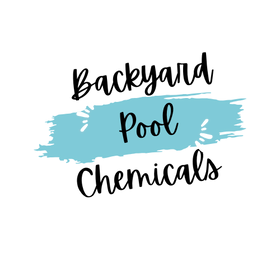Maintaining a clean and safe pool means balancing a bunch of different chemicals. Here's what each one does:
- Chlorine: The main sanitiser that kills bacteria and algae. Comes in liquid, powder, or tablet form. The strong "pool smell" isn’t from chlorine itself but from it reacting with stuff like sweat and oils – this means you need more chlorine, not less.
- Shock: A powerful chlorine dose (or non-chlorine option) that resets the pool by breaking down used-up chlorine (chloramines) and bacteria. Usually done weekly or biweekly.
- Bromine: An alternative to chlorine, best for hot tubs because it works well in warmer, more alkaline water.
- Cyanuric Acid: Protects chlorine from being broken down by sunlight – like sunscreen for your pool water. But too much can make chlorine less effective.
- pH Balancers:
- Alkalinity Up: Raises pH, lowers acidity.
- pH Down or Hydrochloric Acid: Lowers pH, increases acidity.
- Ideal pH: 7.4–7.6.
- Calcium Chloride: Keeps your pool water from “stealing” minerals from tiles and metal. It raises calcium hardness.
- Algaecide: Stops algae growth after shocking the pool.
- Clarifier: Clumps tiny particles together so your pool filter can catch them. Made from various chemicals and even natural stuff like crab shells.
- Flocculant: Similar to clarifier but heavier – it sinks particles to the bottom of the pool so they can be vacuumed out. Don’t run the filter while it's working.
Safety note: Store all chemicals safely away from kids and pets. Always follow manufacturer instructions.
Pool Chemistry for Beginners
Hey there, pool owner! If your head’s spinning with all the pool chemical talk, don’t stress – we’ve got your back. Here's a super simple guide to what your pool actually needs to stay clean and safe.
Chlorine – The Germ Buster- Think of chlorine as your pool’s bodyguard. It fights off bacteria and keeps the water safe. But when it smells strong, it’s not because there’s too much – it’s because there’s not enough! Weird, right?
Pool Shock – Time to Hit Refresh- Every week or so, your pool needs a reset. That’s where “shocking” comes in. It’s like a deep clean for your water using a strong dose of chlorine (or a gentler option). It zaps all the yucky stuff chlorine can’t get to when it’s tired.
Bromine – For the Hot Tub Crew- If you’ve got a Spa or hot tub, bromine is your guy. It works better than chlorine in warm water.
Cyanuric Acid – Chlorine’s Sunscreen- The sun loves to eat up chlorine. Cyanuric acid protects it so it lasts longer. But don’t go overboard – too much of it makes chlorine lazy.
⚖️ Balancing pH – Not Too Acidic, Not Too Alkaline
You want your water to sit in the sweet spot (pH 7.4–7.6). To get there:
- Use Backyard Pools Alkalinity Up to raise pH.
- Use Backyard Pools pH Down to lower it. Think of it like balancing your pool’s mood.
🏗️ Calcium Chloride – Protects Your Pool's Bones
Too little calcium and your pool water starts nibbling on your tiles and metal parts. Add calcium chloride to keep things solid.
🌿 Algaecide – Say “Nope” to Green Water
After shocking, toss in some algaecide to stop algae from taking over like it’s spring break.
🔍 Clarifier – Making Water Sparkly
Clarifiers grab all the tiny bits floating around and help your filter catch them. It’s like a spa day for your pool.
⬇️ Flocculant – Drop It Like It’s… Dirt
Got cloudy water? Flocculant pulls all the junk together and drops it to the bottom. Then all you have to do is vacuum it up. Easy.
Final Tip: Keep all chemicals away from kiddos and furry friends. And always read the labels – they’re more helpful than you’d think. Got questions? Your pool service pros are just a call away.
FAQ – Pool Chemical Questions, Answered!
What pool chemicals do I need to get started?
The basics are chlorine, a pH balancer, and shock. The others (like algaecide or flocculant) are for special situations – like algae outbreaks or cloudy water.
How often should I shock my pool? Usually once a week, or every two weeks if your pool doesn’t get much use. After a pool party or storm? Definitely shock it then too.
Can I use chlorine and bromine together? Nope! Mixing them can cause a nasty chemical reaction. Stick to one or the other – chlorine for pools, bromine for hot tubs.
Why is my chlorine disappearing so fast? It’s probably the sun doing its thing. Add stabiliser to protect the chlorine, especially during sunny months. Think of it like sunscreen for your water!
My pool smells strong – too much chlorine?
Actually, that smell means your chlorine is used up, and you need to shock the pool. That "chlorine smell" comes from chloramines – not chlorine itself.
What should my pool's pH level be?
Keep it between 7.4 and 7.6. If it dips too low, the water gets acidic and can damage pool equipment. Too high, and chlorine won’t work as well.
How do I fix cloudy water?
Try a clarifier or flocculant. Clarifiers help your filter catch tiny particles; flocculants make them sink so you can vacuum them out. Don’t forget to clean or backwash your filter too!
Do I need different chemicals in the winter?
Yes – when closing your pool, you'll need a TLC kit with algaecide and shock. It helps keep the water clean while your pool hibernates.
Are pool chemicals safe for kids and pets?
Not if they get into them directly. Always store chemicals safely – locked up and out of reach. And wait the recommended time after adding chemicals before jumping back in.








